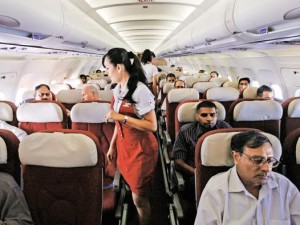The new Civil Aviation Policy gives a boost to the domestic aviation sector by offering auctioning of unilateral traffic rights and tax incentives. Under the new policy, domestic airlines will be free to enter into code-share agreements with foreign carriers for any destination within India on a reciprocal basis. In fact, the policy has completely liberalised international code share between Indian and foreign carriers. Government will also liberalise the regime of bilateral rights, which in turn would lead to greater ease of doing business and wider choice to passengers. The policy also proposes real time safety tracking. The Civil Aviation Policy is aimed at creating an eco-system to handle 300 million domestic passengers by 2022 and 500 million by 2027, and 200 million international travellers by 2027. India recorded around 139.32 million domestic and over 50 million international air travellers in 2014-15.
Read More »
Breaking News
- India’s adventure tourism set to triple by 2030, surpass 7 lakh crore by 2033
- FAITH Conclave 2025 kicks off today, to launch $3 tn Tourism@2047 vision
- Abu Dhabi to host 68th TAAI Convention in September to strengthen India ties
- TravTalk & VisitBritain bag ‘Most Effective Performance Driven Campaign’ award
- The Global Rep Expands Footprint in South India, Appoints Vartika Chaturvedi to Head Tamil Nadu Sales
- Travstarz expands DMC portfolio, adds Morocco as 27th destination for Indians
- NOK AIR to resume flights from Hyderabad and Mumbai to Bangkok starting 26 October
- India records 1.31 lakh medical tourist arrivals between January and April 2025
- Delhi government unveils ₹25 crore plan to highlight capital’s tourism appeal
- Tour Blue Holdings Awarded GOOD TRAVEL SEAL, Joins Travelife, and Expands to Northern Sri Lanka with New Jaffna Office
- Anantara Jewel Bagh Jaipur hosts excusive evening in Delhi, plans to expand focus to FIT, MICE & corporate
 Tourism Breaking News
Tourism Breaking News
